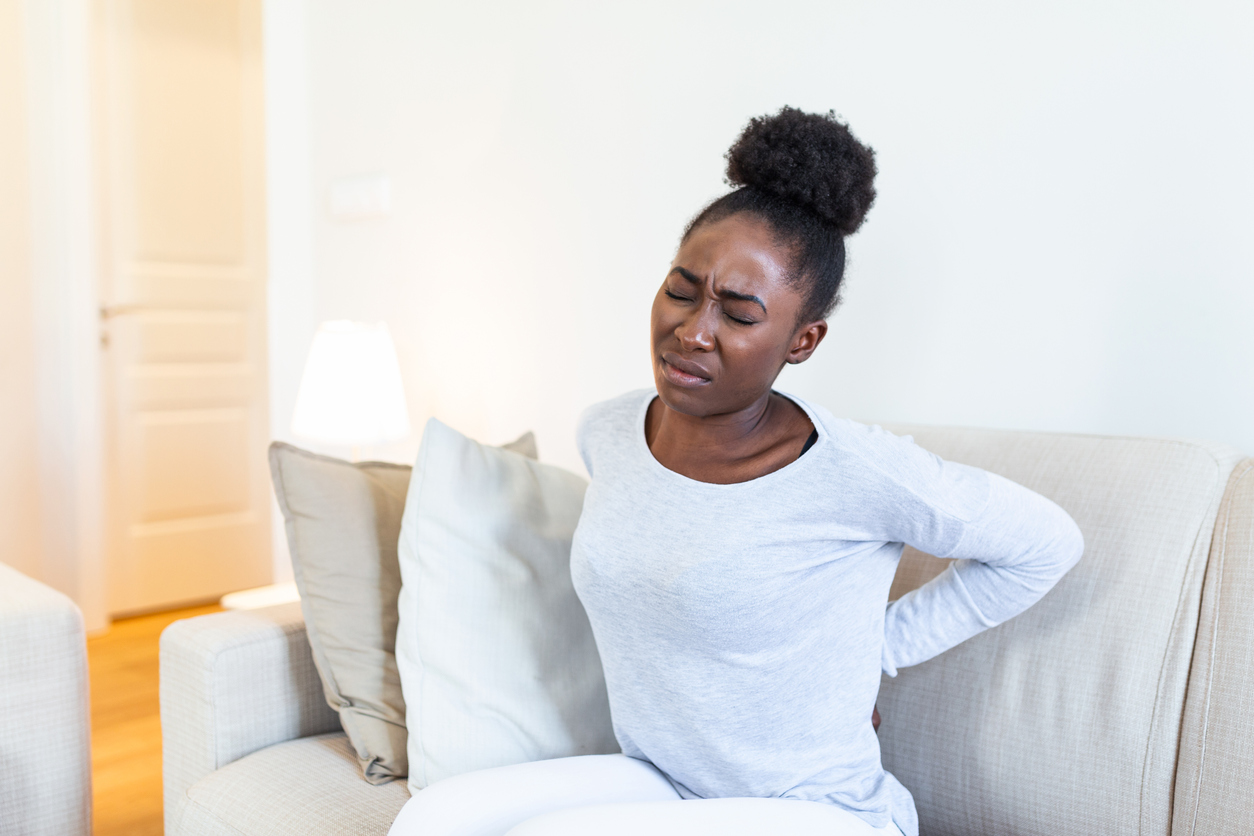*Promoted content
The right mattress can make a difference to your sleep quality and help you cope with a painful back condition or injury.
So it’s important to think about your choice of mattress and understand why different types might give you a better night's sleep. This could, in turn, help to prevent and relieve back pain.
Why mattress choice matters for back pain
During the day, the muscles and ligaments of your spine are constantly working to support your body. They only completely relax while you're sleeping. This means that a good night's sleep is important for the health of your back.
Back pain can sometimes be caused by an injury to the muscles or ligaments of the back. For the pain to go away, the injury needs to heal and a good night’s sleep gives your body the chance to rest and regenerate.
Even if your back pain isn't due to an injury, the right mattress can help you find a good position while you sleep. This can help reduce back pain and leave you feeling more refreshed in the morning.
As mattresses age, they become less supportive and may not give you the same comfortable night's sleep, which can make back pain worse. If your mattress is 5 to 7 years old, it may be time to replace it.

What should I look for in a new mattress?
Everyone's different, so the right mattress is the one that feels comfortable and supportive to you.
Here are some factors to think about:
-
Do you prefer a softer or a firmer mattress?
Different mattresses offer different degrees of support. There's some evidence that a firmer mattress can help relieve back pain. However, the most important factor is whether your mattress feels good to you. -
Do you tend to feel too hot or too cold while sleeping?
The material your mattress is made from can make a difference to how warm or cool it is to sleep on. -
Do you need a mattress that's compatible with an adjustable bed?
Not all mattresses are suitable for adjustable beds, so keep this in mind when looking for your ideal mattress.
Once you've thought about these factors you can look at mattress types.
What types of mattress are available?
There are several types of mattress. Each has different benefits that might help you sleep comfortably with back pain.
Memory foam mattresses
Memory foam mattresses mould to your shape when you lie down and return to their original shape when you move. They can be firm and supportive, or soft and relieve pressure. They're also quite insulating, which makes them warm and cosy to sleep on.
If you're looking for a memory foam mattress, why not take a look at the Flo Mattress collection?

According to the manufacturers, the range combines memory foam with a temperature-sensitive gel to help regulate your temperature while you sleep. The foam also creates a feeling of weightlessness – like floating in water.
The company's Ortho mattress provides firmer support, which may be particularly helpful for back pain. Its Ergo mattress gives a softer feel.
Flo mattresses are delivered direct to your door – and vacuum packed for easy handling. They come with a 100-night guarantee, so you have plenty of time to try it out before deciding if it's right for you. You can order directly from the website. Prices start from around $140 (Rs.10,489).
Innerspring mattresses
An innerspring mattress uses a traditional spring construction. The amount of support depends on the number and strength of the coils within the mattress.
They can be very firm and supportive, or quite soft. Innerspring mattresses don't mould to your shape.
Some innerspring mattresses come with a soft layer of padding on top for extra comfort. These are often called pillow top mattresses.
One option to explore is Sealy's innerspring mattresses and pillow top mattresses.

Hybrid mattresses
A hybrid mattress layers memory foam over an innerspring mattress – providing a good balance of comfort and support that can help transform your sleep.
A great example is Simba, which offers 2 types of hybrid mattress for a very comfortable sleep experience. Its standard hybrid mattress features 5 layers for ultimate comfort. And for those who get hot while they sleep, its 7-layer hybrid pro mattress has inbuilt layers designed to encourage airflow – helping even the warmest body stay cool at night.
Latex mattresses
A latex mattress provides a particularly springy, responsive sleeping surface.
A small study in 2010 found that people with chronic shoulder and back pain had less pain and a better night's sleep on a latex or memory foam mattress.
If you're interested in trying a latex mattresses, take a look at Una for some options that may suit you.
Key points
- the right mattress can make a difference to back pain by improving your sleeping posture and supporting your spine
- mattresses lose their supportiveness over time, so if your mattress is 5 to 7 years old and you have back pain, it may be time for a replacement
- there's some evidence that firmer mattresses can help back pain sufferers but you should always choose a mattress that feels comfortable for you
- one option is the Flo Mattress collection, made using supportive memory foam for comfort and a sensation of weightlessness
*In some cases, Your.MD may benefit commercially from promoting third-party health products and/or services. Your.MD is not liable for products and/or services provided by third parties.





